Список разделов » CG Новости » Портфолио
Interview with Nicholas Miles
| Автор: Teku | Интервью с великолепным художником, рисующим яркие запоминающиеся картины, на каждой из которых прямо таки буйство красок, все его работы пир для глаз.
3DTotal : Hey Nick – welcome to the pages of 2DArtist! Now if I’ve got my facts right, you’re a UK-based, games concept artist, who’s been working in the industry for the last three years. You’ve worked on titles from the Spongebob Squarepants series, as well as producing a real mixture of fantastic personal pieces, one of which is featuring in our very own Digital Art Masters: Volume 4! So I guess what I’d like to know is how you came to be where you are today. Did you just wake up one morning and decide you wanted to be an artist? Nick : Hey Jo. Like a lot of kids, I loved to draw. I remember smothering the kitchen floor in paintings as a kid. Unknowingly my mum would wander into this minefield of hastily painted pictures. The not quite dry sheets of printer paper would stick to her shoes and consequently I’d find myself in a spot of bother. Probably one of the few times where being artistic didn’t do me any favours! I didn’t set out to become an artist; in hindsight I can see now that I did spend a lot of time on creative endeavours, but I think it was just something I did and over time it found me. The more time I spent focused on my art the more my passion for exploring creative avenues grew until one day I realised that I couldn’t see myself doing anything else in my life. 3DTotal : I gather that you’re a predominantly self-taught artist. What do you think are the advantages and disadvantages to such a position? And just how do you go about teaching yourself how to be an artist? I would imagine it requires a lot of practice and patience! Nick : I’ve been focused on developing my illustration and concept skills ever since I left University. However, illustration was not initially my chosen field. Whilst I enrolled in an Art Foundation course like many students, my chosen field was Product Design before moving onto Graphic Design which I carried on into University. I think originally I was torn between following my heart and getting a “real job” which is a term you hear a lot when you’re a student!
I then realised that your life is a long time to do something you don’t enjoy and that I wanted to wake up every day looking forward to the creative challenges ahead, so I completely shifted gears and focused on what I would need to become a concept artist. Though I had a basic level of illustrative skill and a fleeting knowledge of applications like Photoshop, I knew I’d have to be a lot better, so I knuckled down and set myself to task.
Starting out I found a number of online art forums; these were incredibly inspiring and hugely humbling all at the same time. Through seeing the art of professional concept artists and freelance illustrators, I could see how high the quality bar was set and so establish the criteria I would need to meet in order to become a concept artist.
The first year after university is an exciting time, but also an uncertain one. I quickly developed a support network; I talked to artists online, learned from their experiences, picked up advice on working practices where I could and applied them at every opportunity. I learnt a lot over that first year by networking and just putting the hours into developing my drawing and painting skills. It’s daunting to think that after education you’re totally in control of your own future, but then there’s something hugely liberating in knowing that by planning your goals and putting the hours in you can pretty much go as far as your desires can take you.
I think being self taught allows you the latitude to explore and develop your own style without being so heavily influenced by those around you that you start to lose some of that personal flair before it’s had the chance to surface. At the same time though, there isn’t the support there that you’d find on a specialised course where everyone is working towards a similar goal. You need to be very motivated as no one else is going to do that for you. Specialised courses will often help you establish links with the industry, but if you’re self taught you’re going to have to do that yourself, so networking skills are especially important.
3DTotal : I think all of us here at 3DTotal can empathise with that “I should get a proper job” feeling! Launching yourself into the artistic industry isn’t a move for the faint hearted and I imagine that every artist has gone through a few uncertain times during their career. So what was your first proper artistic job? And as a self-taught artist, was it hard to get or did you find that you were judged more on your artistic ability than what degree you studied at university? Nick : My first taste of the industry came in the form of storyboarding for indie filmmaking collectives in the UK. I was eager for the experience and it was a good insight into what it would be like to work alongside producers and hone someone else’s vision into something slightly less nebulous than the usual mental meanderings! It was great experience and it was through building up these contacts and various storyboarding projects that I was able to make a move into the games industry. I found my way to Blitz Games Studios and applied for the role of Concept Artist. Despite the fact I was very much a rookie, all the work I’d done in the previous year, including the work as a storyboard artist, helped to prove that I was dedicated to becoming a concept artist. I think I was very fortunate to come across a guy (who would later become my Art Manager) who was willing to take a chance on a graduate such as myself and give them a chance to prove themselves. Personally I think a lot of opportunities that are offered to us in any area of the creative industry arise through 40% talent and 60% perseverance. Like everyone, when I was starting out there were a lot of dead ends; a lot of polite rejection letters. I just kept at it, worked harder, pushed through the uncertain times and I think it’s this dogged determination that helped me get where I am.
3DTotal : Now I just have to ask you about The Insect Dynasty, because I’ve seen some of the artwork for it and quite frankly, it looks amazing! For those uninitiated out there, could you just give us a quick overview of what this project is all about? Nick : The Insect Dynasty was spawned from the first Mantis Queen portrait. Initially it was not my intention to form a larger brief from this portrait, but as I continued to paint I found myself wondering about her back-story: what kind of world she lived in; her experiences as a ruler; the expectations placed upon her. Very quickly I realised I had the makings of a wildly dynamic world, which I called The Insect Dynasty. My intention is to tell the story of these characters. To describe a world of great beauty where tenuous alliances between wildly exotic beings are in a constant state of flux and where the slow, relentless grind of conflict is so ensconced amongst certain members of the Dynasty that they know nothing else. This is a world of contrasts, where highly ordered hierarchies clash with turbulent tribes. As the factions shift and vie for power they are all slowly falling under the influence of another force, something they will come to know as the Gloaming. Initially The Insect Dynasty will come to life through my paintings, but in the background I’m writing the novel to compliment and enrich the art, which I hope to publish in some form late next year. The website (http://www.theinsectdynasty.com) will go online this July and I’ll continue to expand this site as the story approaches completion.
Wow – not only content with creating an entire world, but you’re also writing a novel! You’re obviously not afraid of hard work [Laughs]. Have you done much writing on this kind of scale before? And how is the novel progressing? Is a fully-illustrated version of The Insect Dynasty saga going to hit the shelves any time in the near future? (If so I’d love to buy one!) [Laughs] Yeah, I get into a cold sweat if I’m away from a Wacom tablet for more than an hour! There is definitely a lot of work involved and just when you think you couldn’t cram anymore into a working day, you find there’s a whole other level of “busy” that makes the old you look like a complete slacker. This is my first large scale writing project. I think my time as a storyboard artist has given me a good sense of how to pace a story and my partner Sally is an English teacher, so hopefully she’ll pick me up on some of my quirkier grammar!
The Insect Dynasty is currently in pre-production. I’ve been busy establishing the different races, such as the Mantids and Beetles. By laying out the groundwork I can get a good feel for how each society functions, how their hierarchies flow and what is expected of each member of that society. It’s great fun and very insightful to place yourself, for example, in the shoes of a Beetle Soldier and run through what a day in their life would be like.
The aim is to compile a sort of fact file for each race to establish their mindsets, their strengths and, more interestingly, their weaknesses. This will help me to achieve an intuitive feel for how each race will deal with the problems they will face. The goal is to take this framework and apply it to the main story arc in such a way that it assists the narrative but isn’t so meticulous that it starts to restrict the flow of the storyline, as these things invariably take on a life of their own. The initial draft will take shape in the second half of this year and I’ll take it from there.
3DTotal : What’s your typical working process for creating one of your Insect Dynasty characters, from start to finish? And do you start with a sketch and then just see where your imagination takes you, or now that the project has been established, do you already have a clear idea about the characters’ appearances and background before you put your digital paint onto the canvas? Nick : I use a lot of the tried and tested techniques, such as silhouette generation. Another route is taking a canvas, applying abstract forms and seeking out characters from this chaos of brush strokes. There’s also a lot of rough pencil sketches involved. Often I will apply all these techniques in the creation of a singular character.
The random form generation is great for establishing routes of exploration that you might not have initially considered. These can then be taken back and used for the basis of silhouette generation and then I can add more clarity to the design by sketching out these forms in pencil. From there I might then overlay more of the random shape generation processes to push the design further.
The basic rules for the look of The Insect Dynasty have been laid down. For example, the Mantids stand from about 6 to 12ft in height and rely more on their speed and agility than brute strength. They share more physical traits with humans than the formidable Beetles. These guys loom larger still and, as you can imagine, rely on their strength and heavy armour to carry them to their goal. There are others, like the Butterfly Assassin, who are only about 12 inches in height, so they have a real challenge in holding their own against these other formidable races. By having a basic rule set I can ensure that the races have enough consistent visual cues to make them a cohesive whole, whilst also coexisting with the other races to make this world as believable as possible.
3DTotal : Seeing as they provide the backbone for your whole project, I just have to ask: what is it about insects that you find so inspiring? Nick : One of the skills needed as a concept artist is to make your designs fit as coherently and believably into the given brief as possible, which entails thorough research. The research phase is a lot of fun as you’re constantly discovering things that push your perceptions of the realms of possibility. It doesn’t matter how crazy you think your ideas are, there’s a good chance nature’s already been there, done that and pushed it ten times further then you thought possible. This is how I arrived at insects. The sheer diversity in size, form, colour, texture, function, locomotion and so on is just a visual feast; an unending source of inspiration and one that for this project I couldn’t resist. Somewhat ironically though I’m actually a little afraid of spiders. I recently purchased a display of pinned insects, as hands-on research is often invaluable. It does however have a big old tarantula in the middle of the display, so when it’s not in use I have to keep it on a shelf above eye level as shocking myself by catching sight of a giant spider every few minutes probably wouldn’t do much for my nerves!
3DTotal : I’m glad I’m not the only one who suffers from spider-fear! Now, your Insect Dynasty creations aside, I love how character-driven the majority of your art is. There’s such a sense of personality in each and every piece; I really want to know more about the characters and how they came to be in the situations that you’ve depicted. My particular favourite has to be “Harbinger of Kestralis”, which is also a great example of the really intense, vibrant, almost fluorescent colour that you seem to favour. With all the various artistic choices out there, and the different directions your artwork could have taken, how did you arrive at this particular artistic style? Nick : Colour is one of those things I’ve never been afraid to play with. I think all artists have a core skill which they can innately feel out; I know some who have a real gift for dynamic illustration, others for something more specific like architecture. I think mine is probably colour. People used to comment on how my paintings would make their eyeballs bleed! I think over the last three or four years, as my understanding of the application of light and colour has sharpened, I’ve become more adventurous with the palettes I choose, giving the images clout where needed to help guide the viewer’s eye around the composition without resorting to putting anyone’s eyeballs under too much strain! Paintings like “Harbinger of Kestralis” are there to remind me to never lose that playful aspect of my palettes, to not be afraid and to sometimes just throw down some bold colours and see where it leads.
I’m inspired by a great many artists; some are on my doorstep while others are in parts of the world I have never seen, but they all inspire me to push myself further. There’s always more to learn, which is one of the reasons why I love being an artist.
3DTotal : Aside from The Insect Dynasty, what other projects are you working on at the moment? And do you have anything lined up for the future, or is it insects all the way? Nick : During the day I continue my role as a games concept artist. The Insect Dynasty will definitely take a great deal of my attention through 2009 and 2010. I have other slow burning projects such as Exula which is another world building project that I’ll bring to fruition after The Insect Dynasty. Exula features a menagerie of human and alien characters thrown together in a world where the Demi Gods of the past, known as the Guardians, are beginning to exert their influence once more. The “Harbinger of Kestralis” is a painting from the Exula world. I’ve also produced album art for the band Left Below and there may well be more of that in the future. Otherwise I’m just going to keep on indulging my passion and keep drawing, writing and sculpting whenever I get the chance.
3DTotal : Now just a quick question to finish: if you had to name one artist whose work you find particularly striking, or who has influenced you in some way, then who would it be and why? Nick : Just one you say? Crikey [Laughs]! Well I guess I’d have to take it back to grass roots level. Back in the day when the web was just a series of yoghurt pots and taut string, I’d just graduated from university and was seeking art collectives and the first place I came across was the Flight forums run by a guy called Kazu Kibuishi. He’s well known for his comic shorts such as Copper and his ongoing graphic novel series Amulet, much of which can be found on his personal website:
Despite the fact he was obviously very busy he always took the time to look over the forum posts and provide critique and encouragement to artists such as myself. I was, and still am, drawn in by the wonderment and optimism much of his work is imbued with. I feel that the narrative drove much of his work and the visuals that accompanied it, be it for a comic or a one-off painting, always enhanced the narrative rather than dictated it. It’s difficult to do his work justice so I’ll just say that he continues to be a great source of inspiration, both directly and indirectly, and he helped to give me the strength to forge my own path. I’m very grateful for that! Thank you!
By posting work in places such as the Flight forums I persisted; I took on board the critique I was given and pushed myself to improve. I remember reading magazines like 2DArtist and wondering what it’d be like to be on those pages and now I am - very cool indeed!
3DTotal : And it’s been a pleasure to have you here, Nick. Thanks for a great interview and good luck for the future!
Источник: | ||
| Автор: NorthernChild | картинки не понравилмсь текст не читала а почему не перевод кстати? | ||
| Автор: Teku | Мне очень понравились картинки! | ||
| Автор: igotm | ну шо сказать... - она из креветок)))... | ||
| Автор: NorthernChild |
а не офигел ли ты такими словами кидаться? Вежливее будь
на вкус и цвет как известно все фломастеры разные | ||
| Автор: CosmoLogic | Не все работы нравятся, но большинство, люблю такие сочные цвета | ||
| Автор: Teku | NorthernChild Насчет языка, я уж очень извиняюсь но понимать то понимаю статью но не хватает знаний что бы удобоваримо перевести | ||
| Автор: NorthernChild | ну просто насколько я знаю, русские даже на Комикон придя, начали по русски говорить и жаловаться мол мы английского не знаем )) а тут вот статья аж ))) |
Количество просмотров у этой темы: 9526.
← Предыдущая тема: FutureCity - Lima 2114














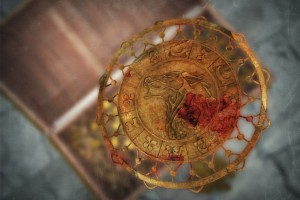


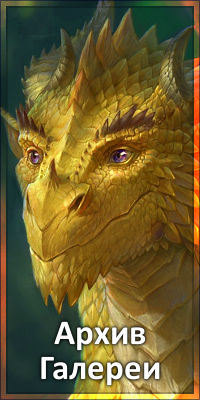

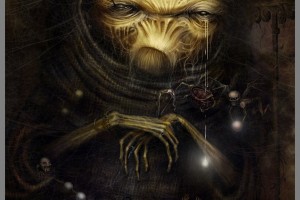
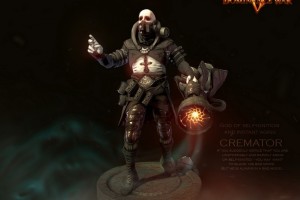
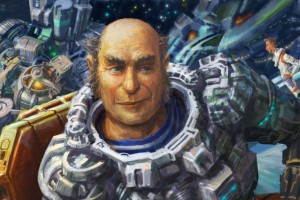

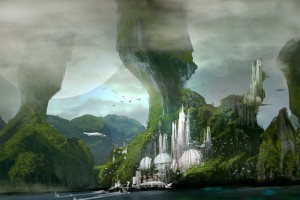
 2015 © ART-Talk.ru - форум про компьютерную графику, CG арт, сообщество цифровых художников (18+)
2015 © ART-Talk.ru - форум про компьютерную графику, CG арт, сообщество цифровых художников (18+)